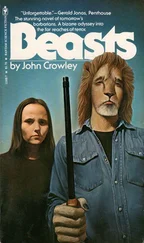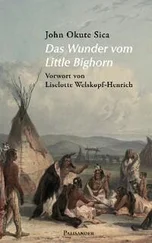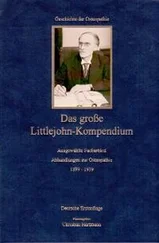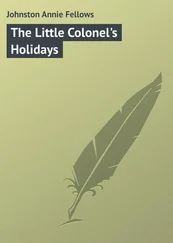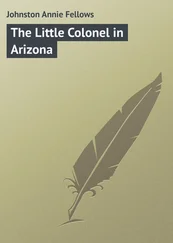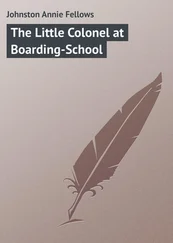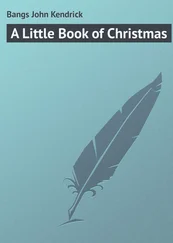He looked at the dim range of snowy mountains which Daily Alice made beside him. If he was a character, she had made him one. And if he was a character, he was probably a minor one: a minor character in someone else’s story, this tall story he had got himself into. He would have his entrances and exits, contribute a line of dialogue now and then. Whether the character would be crabby schoolmaster or something else didn’t seem to matter much, and would be decided along the way. Well then.
He examined himself carefully for feelings of resentment at this. He did feel a certain nostalgia for his vanished anonymity, for the infinity of possibilities it contained; but he also felt her breathing next to him, and the house’s breathing around him, and in rhythm with them he fell asleep, nothing decided.
While the moon smoothly shifted the shadows from one side of Edgewood to the other, Daily Alice dreamed that she stood in a flower-starred field where on a hill there grew an oak tree and a thorn in deep embrace, their branches intertwined like fingers. Far down the hall, Sophie dreamed that there was a tiny door in her elbow, open a crack, through which the wind blew, blowing on her heart. Doctor Drinkwater dreamed he sat before his typewriter and wrote this: “There is an aged, aged insect who lives in a hole in the ground. One June he puts on his summer straw, and takes his pipe and his staff and his lamp in half his hands, and follows the worm and the root to the stair that leads up to the door into blue summer.” This seemed immensely significant to him, but when he awoke he wouldn’t be able to remember a word of it, try as he might. Mother beside him dreamed her husband wasn’t in his study at all, but with her in the kitchen, where she drew tin cookie-sheets endlessly out of the oven; the baked things on them were brown and round, and when he asked her what they were, she said “Years.”
Book Two
BROTHER NORTH WIND’S SECRET
The shepherd in Virgil grew at last acquainted with Love, and found him to be a native of the rocks.
—Johnson
After John Drinkwater’s death in 1920, Violet, unable to bear or even believe in the thirty years and more of life without him promised her by her cards, retreated for a long time to an upstairs room. Her thick dark hair, turned prematurely white, and her elfin thinness, grown more pronounced because of a sudden distaste she took in that year to most food, gave her the appearance of great and fragile age, though she didn’t seem aged; her skin remained unlined for many more years, and her dark, liquid eyes never lost the infant, feral innocence which John Drinkwater had first seen in them in the last century.
It was a nice room, facing in several directions at once, In one corner, half the interior of a dome (all the interior it had, though its exterior was whole) made a windowed retreat, and she had a big buttoned chaise there. Elsewhere, her bed, hung with the gauzy curtains and covered with the eiderdowns and ivory-colored laces with which the mother she had never known had clothed her own sad marriage bed; a broad oxblood-colored mahogany table, piled up with John Drinkwater’s papers, which she had at first thought to put in some order, and maybe publish, he had loved to publish, but which in the end she only left piled there under the gooseneck brass lamp; the humpbacked cracked leather trunk from which they had come and into which, years later, they would go again; a couple of splayed velvet armchairs, napless and cozy, by the fire; and those small things—her silver and tortoiseshell combs and brushes, a painted music-box, her strange cards—which her children and grandchildren and visitors would later remember as being the chief furnishings of the room.
Her children, except August, didn’t resent this abdication of Violet’s. She had not often been wholly present anyway, and this seemed only the natural continuation of her daily abstraction. They all, except August, loved her deeply and uncritically, and would contest with each other over who would bring up her frugal and as often as not uneaten meals, make up her fire, read her her mail, or be the first to bring her news.
“August found a new use for his Ford,” Auberon told her as they looked together through some pictures he had taken. “He took a wheel off, and hitched it with a belt to Ezra Meadows’ saw. Then the engine will turn the saw, and cut wood.”
“I hope they don’t go far,” Violet said.
“What? Oh, no,” he said, laughing at the image she must have, of a tooth-wheeled Model T tearing through the woods, felling trees as it went. “No. The car is put up on logs, so the wheels just go around but don’t go anywhere. It’s just to saw with, not to drive around.”
“Oh.” Her slim hands touched the teapot, to see if it were still warm. “He’s very clever,” she said, as though she meant something else.
It was a clever idea, though not August’s; he had read of it in an illustrated mechanics magazine, and persuaded Ezra Meadows to try it out. It proved to be a little more laborious than the magazine described it, what with leaping in and out of the driver’s seat to alter the blade’s speed, cranking each time the engine stalled out on a knot in the wood, and shouting What? What? back and forth with Ezra over the racket it made; and August had little interest in the production of sawn wood anyway. But he loved his Ford, and anything it could be made to do, from bouncing obliviously down railroad tracks to skimming and whirling like a four-wheeled Nijinsky over a frozen lake, he made it do. Ezra, suspicious at first, at least didn’t have the airy contempt for Henry Ford’s masterpiece which his family or people like the Flowers had; and making such a to-do in Ezra’s yard brought out from her chores more than once his daughter Amy. Once with a dishclout in her hand, abstractedly wiping a white-speckled black tin frying pan as she stared; again with her hands and apron floured. The belt of the saw broke, and went flapping wildly. August cut the engine.
“There now, Ezra, look at that. Look at that stack.” The fresh yellow wood, rough-cut and burned in brown arcs here and there by the blade’s insistence, gave out its sweet odor, resin and pastry. “That would have taken you a week by hand. What do you think of that?”
“It’s all right.”
“What do you think, Amy? Pretty nice?” She smiled, and looked shy, as though it were she he was praising.
“It’s all all right,” said Ezra. “Gwan, git.” This to Amy, whose expression changed to a hurt hauteur as sweet to August as her smile; she tossed her head and went, slowly, so as not to appear dismissed.
Ezra helped him bolt back the wheel of the Ford in silence; an ungrateful silence, August thought, though maybe the farmer was afraid that if he opened his mouth the subject of payment might come up. He was in no danger; for August, unlike the youngest son in all the old tales, knew he couldn’t demand, in return for the accomplishment of an impossible task (the sawing of a couple hundred board feet in a single afternoon), the hand of his beautiful daughter.
Rolling home along the familiar roads, raising the familiar dust, August felt sharply the congruence (which everyone else saw as a contradiction) of his car and this deep summer. He made a small, unnecessary adjustment to the throttle, and tossed his straw hat on the seat next to him; he thought that if the evening were fine he might drive to some spots he knew of, and do some fishing. He was conscious of a bliss that stole over him not infrequently now, had first stolen over him when he had first acquired his car, first bent up its bat-wing hood and seen the engine and drive-train, humble and useful like his own internal organs. It was a sense that at last what he knew of the world was sufficient to his being alive in it: that the world and what he knew of it were one. He called this feeling “growing up,” and it did feel like growing, though in moments of mad elation he would wonder if what he was growing into weren’t a Ford, or perhaps Ford: there was no other instrument, and no other man, so serenely purposeful and complete, August thought, so sufficient to the world and so self-sufficient: it would have been a destiny he could welcome.
Читать дальше

